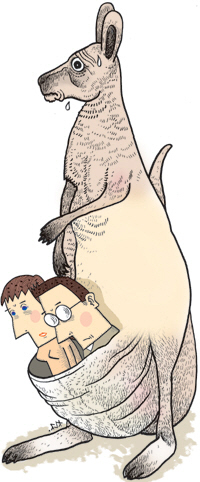There are many different cases of PPS, but they have subtle differences. When Korea was in trouble with the IMF, an expression, “Kangaroo族” was coined in universities. The fundamental notion is similar to PPS. Students with “Kangaroo族” struggle to remain students and are continually dependent on their parents.
The expression “Moratorium” is used in economics; it means postponement of payment. Also, it describes people who want to stay adolescent and avoid the duties of la
 bor or payment. Moreover, they are idle spectators of societies even though they have possibilities to show their capabilities. They usually won’t participate in groups, so their identities are weak.
bor or payment. Moreover, they are idle spectators of societies even though they have possibilities to show their capabilities. They usually won’t participate in groups, so their identities are weak. Next, “Parasitism” is an epidemic in Japan. “Parasitism” is a phenomenon where people in their twenties have part-time jobs to make pocket money, and, despite the fact that they graduated from university, they are still dependent on their parents.
A common form of PPS in Korea is “Evasion of Graduation.” Students on leave of absence are increasing even though female students don’t need a leave of absence for army. Most students on leave of absence go abroad to study, and their parents usually pay the expenses. Another form is “Academic Degree Hunter,” which describes people who change their major often without clear goals.
This phenomena appears in university students, and they are regarded as selfish. Why are these phenomena occurring? PPS comes from personal problems and social problems. In previous times, people formed a communal society with agriculture. However, nowadays, humans are developing industrial societies. Due to the growing industry, households have become smaller as a result of an increase in working women. Therefore, people are becoming more selfish.
To relieve the syndromes, it needs both personal and national endeavors. Support for young people through welfare policies and enforcement of personal emotional growth are needed. Wasting youth is foolish behavior. People should design their lives positively themselves.


 All
All






 곽동희
곽동희











